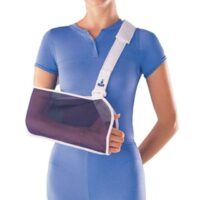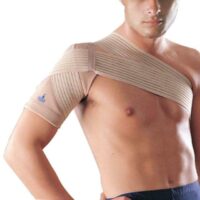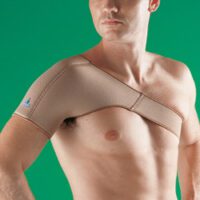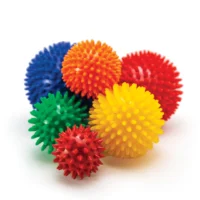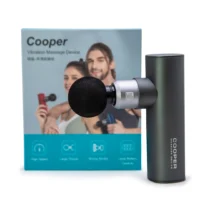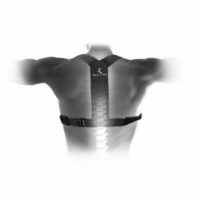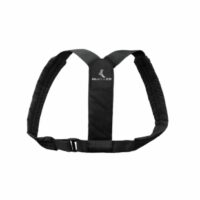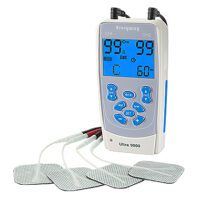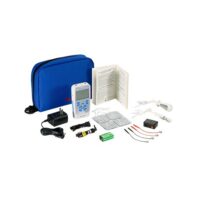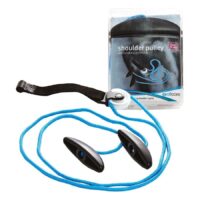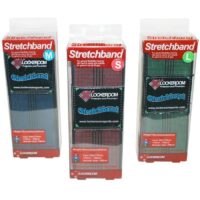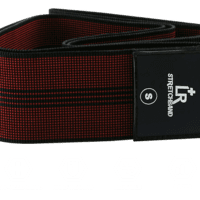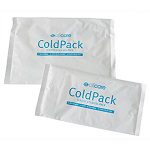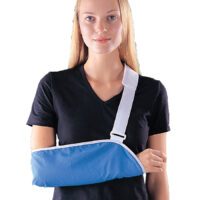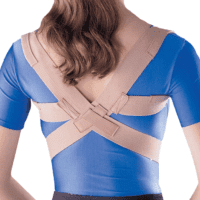Frozen Shoulder (Adhesive Capsulitis)
Article by J. Miller, S.Armfield

Frozen Shoulder
A Physiotherapist’s Insight
What is Frozen Shoulder?
Frozen shoulder, medically known as adhesive capsulitis, is a condition causing significant shoulder pain and affects between 2% and 5% of people, mainly those aged 40 to 60. It’s more common in women, affecting around 70% of those diagnosed. This condition differs from rotator cuff injuries by presenting a unique pattern of symptoms: severe pain, loss of function, and eventual stiffness. It involves inflammation and fibrotic adhesions in the shoulder capsule, restricting movement.
Recent studies suggest various potential triggers for frozen shoulder, including health conditions like diabetes and thyroid disorders. For instance, diabetics have a 10 to 38% chance of developing this condition. Post-surgical patients are also at risk, highlighting the need for careful post-operative care.
What are the 3 Stages of Frozen Shoulder?
Frozen shoulder progresses through three stages:
- Freezing Phase: Lasting 3 to 9 months, this stage causes pain and reduced movement. Aggressive treatments should be avoided at this time.
- Frozen Phase: This 9 to 15-month period involves increased stiffness. Transitioning between the first and second phases can be particularly painful.
- Thawing Phase: Over 15 to 24 months, movement gradually returns. Tailored physiotherapy interventions are most beneficial in this stage, focusing on pain relief initially and then restoring range of motion.
Diagnosing Frozen Shoulder
Diagnosis involves a clinical assessment where difficulties in reaching overhead, throwing, or moving the arm behind the back are noted. A specific capsular pattern of stiffness is often present. Imaging, such as X-rays or MRI, aids in confirming the diagnosis.
Risk Factors
People between 40 to 60 years old are at higher risk, with conditions like shoulder trauma, surgery, diabetes, inflammatory and autoimmune diseases, and thyroid disorders increasing susceptibility. Notably, 20% of individuals with frozen shoulder in one arm may develop it in the other.

How Do You Get Rid of a Frozen Shoulder?
Treatment varies by stage:
- Freezing Stage: Focuses on pain relief and ruling out other causes. Early intracapsular hydrocortisone injections can be beneficial.
- Frozen Stage: Gentle mobilisation, muscle release, acupuncture, dry needling, and exercises are key for regaining range and strength. Overly aggressive activities should be avoided.
- Thawing Stage: Physiotherapy becomes more effective with mobilisations, stretches, and exercises tailored to restore full movement.
Surgery, often a last resort, can improve stiffness by up to 80% when combined with physiotherapy.
Prevention Strategies
Prevention centres on avoiding prolonged shoulder inactivity, particularly after surgery or injury. Managing underlying health conditions like diabetes and thyroid disorders is also crucial.
Conclusion and Call to Action
Frozen shoulder, while challenging, can be effectively managed with the right approach. If you’re experiencing symptoms or fall into a higher risk category, consult a professional physiotherapist for tailored advice and treatment.
Related Articles
- Shoulder Pain & Injury
- Readers will find comprehensive information on common causes of shoulder pain and injury, offering insights into how frozen shoulder fits into the broader context of shoulder issues.
- Rotator Cuff Injuries
- This article explains rotator cuff injuries, differentiating them from frozen shoulder, which is crucial for readers to understand the specific nature of their condition.
- Physiotherapy for Shoulder Pain
- Discover the benefits of physiotherapy in treating shoulder pain, including techniques that can also apply to managing frozen shoulder symptoms.
- Diabetes and Musculoskeletal Health
- Given the link between diabetes and frozen shoulder, this article can provide valuable information on managing diabetes to potentially reduce the risk of developing frozen shoulder.
- Post-Surgical Rehabilitation
- Learn about the importance of post-surgical care for shoulder surgeries, which can help prevent complications like frozen shoulder.
- Acupuncture for Pain Relief
- This article discusses how acupuncture can be used as a pain relief method, including for conditions like frozen shoulder.
Shoulder Pain Causes
Common Injuries & Conditions
Understanding the common shoulder pain causes is crucial, as this discomfort can stem from various issues like rotator cuff injuries, arthritis, and frozen shoulder. Our guide offers a comprehensive exploration of these causes, providing insights into both acute and chronic conditions. It aims to equip you with knowledge and strategies for effective treatment and recovery, catering to those grappling with recent injuries or long-term pain. This resource is your go-to for navigating the complexities of shoulder pain and its management.


Rotator Cuff
- Rotator Cuff Injury: A common condition causing shoulder pain, often due to repetitive overhead activities.
- Rotator Cuff Tendinopathy: Inflammation or damage to the rotator cuff tendons, leading to pain and reduced mobility.
- Rotator Cuff Calcific Tendinopathy: Characterised by calcium deposits in the rotator cuff tendons, causing intense pain.
- Rotator Cuff Tear: Involves a tear in the rotator cuff muscles, often resulting from injury or wear over time.
- Bicep Tendinopathy: Affects the bicep tendon, leading to pain in the front of the shoulder.
Shoulder Impingement Syndrome
- Shoulder Impingement: A condition where shoulder tendons are pinched during arm movements, causing pain and limited mobility.
- Shoulder Bursitis: Inflammation of the bursa, a small fluid-filled sac in the shoulder, causing pain and discomfort.
- Swimmer’s Shoulder: An overuse injury common in swimmers, causing shoulder pain and impingement symptoms.
Shoulder Stiffness
- Adhesive Capsulitis / Frozen Shoulder: A condition where the shoulder becomes stiff and painful, often developing gradually without a specific cause.
Shoulder Instability
- Shoulder Dislocation: Occurs when the shoulder joint is forced out of position, causing pain and instability.
- Functional Shoulder Instability: Chronic instability in the shoulder, often leading to recurrent subluxations, dislocations and pain.
Acromioclavicular Joint
- AC Joint Injury: Involves damage to the acromioclavicular joint, common in athletes and after falls.
Bone Conditions
- Shoulder Arthritis: Degenerative joint disease affecting the shoulder, causing pain and stiffness.
- Broken Shoulder / Fractured Humerus: A break in the shoulder bone, often resulting from trauma or falls.
- Stress Fracture: A small crack in the bone, typically caused by overuse and repetitive activities.
Post-Operative Physiotherapy
Post-Operative Shoulder Rehabilitation: Essential for recovery, involving tailored exercises and therapies to regain strength and mobility after shoulder surgery.
- Subacromial Decompression: A surgical procedure to alleviate shoulder impingement symptoms.
- Shoulder Arthroscopy: Minimally invasive surgery for various shoulder conditions.
- Acromioplasty: Surgery to reshape the acromion and relieve impingement.
- Rotator Cuff Repair: Surgical repair of a torn rotator cuff.
- SLAP Repair: Surgery to fix a specific type of labrum tear in the shoulder.
- Biceps Tenodesis: Surgical procedure to reattach the biceps tendon.
- Biceps Tenotomy: Involves cutting the biceps tendon to relieve pain.
- Total Shoulder Replacement: Replacement of the shoulder joint with artificial components.
Muscle Conditions
- Muscle Strain: A tear or stretch in a muscle, often causing pain and limited movement.
- DOMS – Delayed Onset Muscle Soreness: Muscle pain and stiffness that occurs hours after unfamiliar or strenuous exercise.
Neck Arm Syndromes
Referred Pain: Pain in the shoulder that originates from another area of the body, such as the neck or spine.
- Neck Arm Pain: Pain that originates in the neck and travels down to the arm and shoulder.
- Cervical Radiculopathy: Occurs when a nerve in the neck is compressed or irritated, leading to shoulder pain.
- Thoracic Outlet Syndrome: A condition where nerves or blood vessels between the collarbone and first rib are compressed, causing pain in the shoulder area.
Systemic Conditions
- Fibromyalgia: A chronic condition characterised by widespread musculoskeletal pain, including in the shoulder.
- Rheumatoid Arthritis: An autoimmune disorder that can cause joint pain and damage throughout the body, including the shoulders.
Shoulder Products & FAQs
Explore our range of shoulder products and find answers to frequently asked questions about shoulder pain and treatment options.
Shoulder Pain FAQs
Your Comprehensive Guide to Understanding and Managing Shoulder Injuries
Welcome to the "Shoulder Pain FAQs" page, your go-to resource for understanding various aspects of shoulder pain, injuries, and how to manage them effectively. The shoulder is a complex joint that allows for a wide range of movements, but it is also susceptible to various injuries and conditions that can cause discomfort and limitations in daily activities.
In this comprehensive guide, we will explore the most common shoulder injuries, their causes, and how to identify and treat them. We'll also address frequently asked questions about specific shoulder conditions, providing you with valuable insights into your shoulder health.


When Should You Worry About Shoulder Pain?
Shoulder pain can be caused by numerous factors, ranging from minor strains to more severe injuries. Knowing when to seek medical attention is crucial to prevent further damage and facilitate timely recovery.
Common Shoulder Injuries
We'll swing into the most prevalent shoulder injuries, shedding light on their causes, symptoms, and appropriate treatment options.
More info: Common Shoulder Injuries
What Causes Shoulder Pain?
Understanding the root causes of shoulder pain is fundamental to addressing the issue effectively. We'll explore the various factors that can lead to shoulder discomfort and how to mitigate them.
More info: What Causes Shoulder Pain?
What is Your Scapulohumeral Rhythm?
The scapulohumeral rhythm plays a vital role in shoulder function and movement. We'll explain what it is and its significance in maintaining a healthy shoulder.
More info: What is Your Scapulohumeral Rhythm?
Rotator Cuff: An In-Depth Analysis
The rotator cuff is a critical group of muscles and tendons in the shoulder. We'll dive into its anatomy, functions, and common problems associated with it.
More info: Rotator Cuff: An In-Depth Analysis
How Can You Tell If You Have Torn Your Rotator Cuff?
Identifying a torn rotator cuff can be challenging, but we'll provide you with essential signs to look out for and when to seek professional evaluation.
More info: How Can You Tell If You Have Torn Your Rotator Cuff?
Can You Diagnose A Torn Rotator Cuff Without An MRI?
Find out about diagnostic methods for a torn rotator cuff, including whether an MRI is always necessary for accurate diagnosis.
More info: Can You Diagnose A Torn Rotator Cuff Without An MRI?
Can You Lift Your Arm With A Rotator Cuff Tear?
Discover the limitations and challenges you may face if you have a torn rotator cuff and how to manage arm movement during the healing process.
More info: Can You Lift Your Arm With A Rotator Cuff Tear?
Will Your Shoulder Blade Hurt With A Torn Rotator Cuff?
Learn about the possible relationship between a torn rotator cuff and shoulder blade pain, and what it indicates about your shoulder health.
More info: Will Your Shoulder Blade Hurt With A Torn Rotator Cuff?
Will A Cortisone Injection Help A Torn Rotator Cuff?
Cortisone injections are sometimes used for shoulder pain, but their effectiveness in treating a torn rotator cuff is a point of interest we'll explore.
More info: Will A Cortisone Injection Help A Torn Rotator Cuff?
How Can You Make Your Rotator Cuff Heal Faster?
We'll provide practical tips and strategies to aid in the healing process of a torn rotator cuff and restore shoulder function more rapidly.
More info: How Can You Make Your Rotator Cuff Heal Faster?
Shoulder Bursitis: Understanding the Condition
What is shoulder bursitis, and how does it differ from other shoulder injuries? Get insights into this inflammatory condition and how to manage it.
More info: Shoulder Bursitis: Understanding the Condition
Shoulder Impingement: Causes and Solutions
Understand the concept of the shoulder impingement zone and the factors contributing to rotator cuff impingement and bursitis.
More info: Shoulder Impingement: Causes and Solutions
Frozen Shoulder: Overcoming the Stiffness
Discover how to unfreeze a frozen shoulder and regain a full range of motion through effective therapeutic approaches.
More info: Frozen Shoulder: Overcoming the Stiffness
Shoulder Dislocation/Instability: Seeking Stability
Explore the causes of shoulder dislocation and instability, and the fastest ways to promote healing and prevent future occurrences.
More info: Shoulder Dislocation/Instability: Seeking Stability
Can You Fix Shoulder Instability?
Find out about treatment options to address shoulder instability and regain stability in the joint.
More info: Can You Fix Shoulder Instability?
AC Joint: Identifying and Managing Injuries
Learn how to recognise an injured AC joint and what steps to take for proper care and recovery.
More info: AC Joint: Identifying and Managing Injuries
Swimmers Shoulder: Causes and Remedies
If you're a swimmer or engage in repetitive overhead activities, understanding the causes of swimmer's shoulder and how to prevent it is essential.
More info: Swimmers Shoulder: Causes and Remedies
We hope this comprehensive guide will prove invaluable in your journey to understand and manage shoulder pain and injuries. However, it's essential to consult a healthcare professional for personalised advice and treatment based on your specific condition. Let's dive into the world of shoulder health together!




